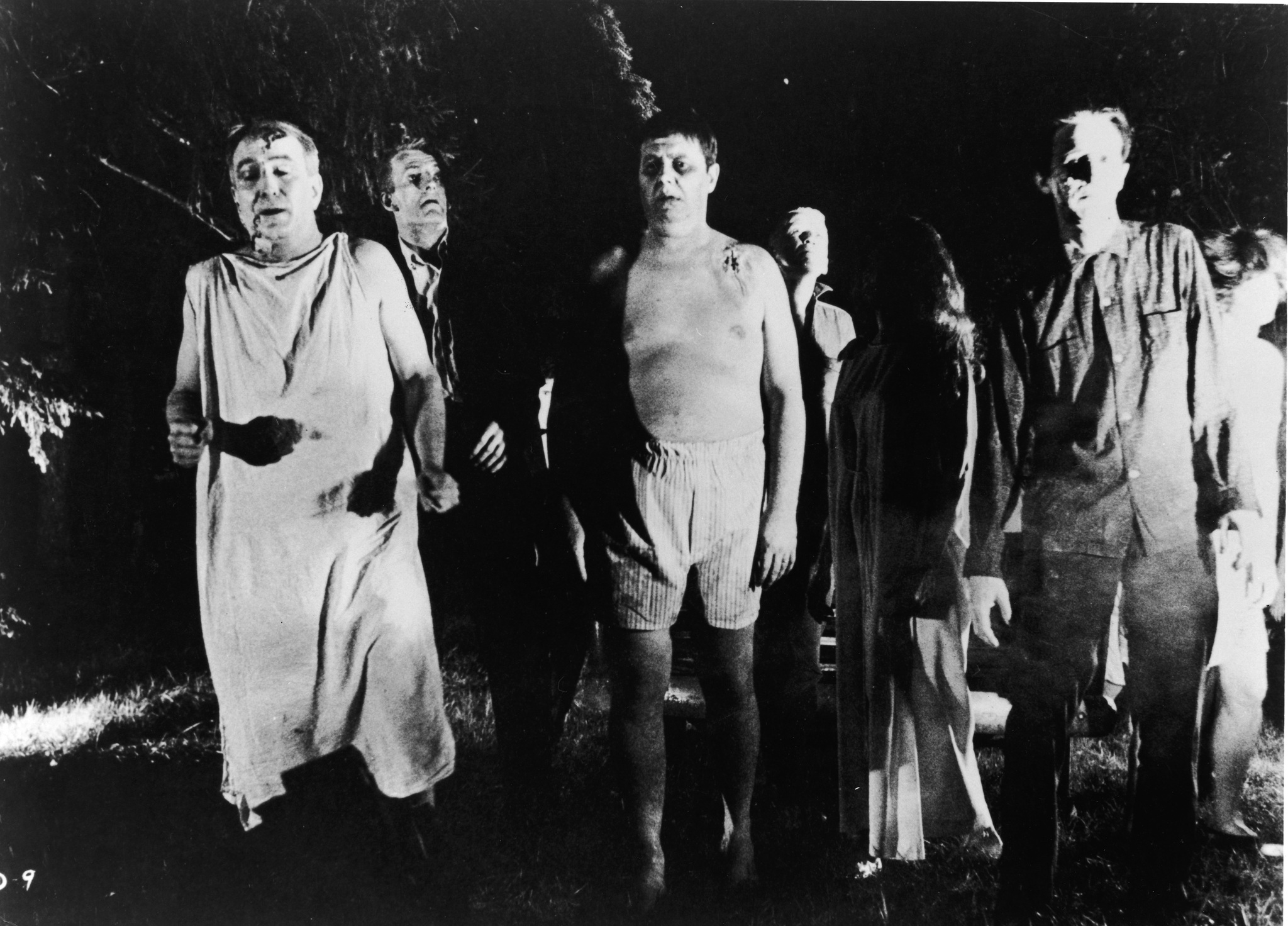The discussion on James McGrath’s post JesusWeen led me to consider the intriguing possibility that atheists, and in fact all people who are not Christian believers, might be zombies.
 Now I am not here talking about the kind of flesh-eating “undead” which seem to be more and more prominent in our popular culture, and will no doubt feature prominently in this year’s Halloween festivities. There is even a Zombie Theology website, at which one of the leading contributors is my blogging friend Alan Knox. But then at that site there are some things taking a similar line to what I am taking here, such as the post When zombies go to Sunday School.
Now I am not here talking about the kind of flesh-eating “undead” which seem to be more and more prominent in our popular culture, and will no doubt feature prominently in this year’s Halloween festivities. There is even a Zombie Theology website, at which one of the leading contributors is my blogging friend Alan Knox. But then at that site there are some things taking a similar line to what I am taking here, such as the post When zombies go to Sunday School.
My point in this post relates to the concept of philosophical zombies. I was led to look at this by the mention of qualia in a comment by idmillington on McGrath’s post. This kind of zombie is defined as
a hypothetical being that is indistinguishable from a normal human being except in that it lacks conscious experience, qualia, or sentience.
Well, they say “hypothetical”, but how can we know that there are not real zombies of this variety living among us? After all, the hypothesis is that they are indistinguishable from the rest of us. But would they really be, not just in their actions but also in their abstract thinking? If a being that lacked true consciousness were to engage in a debate about consciousness, surely its lack of first-hand knowledge would be reflected in its arguments. Would it not be more likely than a genuinely conscious human being to hold that consciousness is illusory?
Let’s turn to what the Bible has to say here. There is a consistent picture in Scripture, starting from Genesis 2:17 and traceable at least to Revelation 3:1, that people who go against God’s ways are spiritually dead, although their bodies and minds are alive. This idea is expounded most clearly by the Apostle Paul:
As for you, you were dead in your transgressions and sins, 2 in which you used to live when you followed the ways of this world and of the ruler of the kingdom of the air, the spirit who is now at work in those who are disobedient. … 4 But because of his great love for us, God, who is rich in mercy, 5 made us alive with Christ even when we were dead in transgressions …
Ephesians 2:1-2,4-5 (NIV)
Christian theologians have generally explained this in terms of the human being as tripartite: body, soul and spirit. On this basis, it is the human spirit which is dead in unbelievers, those who are not “in Christ”, even in those whose bodies and souls (i.e. minds and emotions) are alive. But when someone becomes a Christian, a major part of their “born again” experience is that their human spirit comes alive, as Paul seems to teach in the following verse, although its interpretation is disputed:
But if Christ is in you, your body is dead because of sin, yet your spirit is alive because of righteousness.
Romans 8:10 (NIV 1984)
Can the human spirit be identified with consciousness? That is not impossible. But Christian teaching might suggest more an identification with conscience and intuition, and also that the spirit is the part of the human being which is in contact with God. So would an intelligent being which lacks a human spirit.be a philosophical zombie? Technically, probably not, but it does look as if there is some parallel between the concepts.
A better way to put this might be as foillows. According to Christian teaching, unbelievers and atheists, while not necessarily completely without conscience or intuition, lack the part of the human being which is in contact with God. This explains why they are unable to understand matters of Christian faith. As Paul wrote,
The person without the Spirit does not accept the things that come from the Spirit of God but considers them foolishness, and cannot understand them because they are discerned only through the Spirit.
1 Corinthians 2:14 (NIV)
So please don’t be afraid this Halloween that atheists will break into your home in the night and suck your brains out. After all, some of them have plenty of their own brains. But bear in mind that they may be somewhat lacking in the more spiritual aspects of discernment. And remember that arguing with them is pointless, as they do not have the capacity to understand spiritual matters. Instead, pray for them, that the Holy Spirit will give life and light to their human spirits and show them the truth about God.









